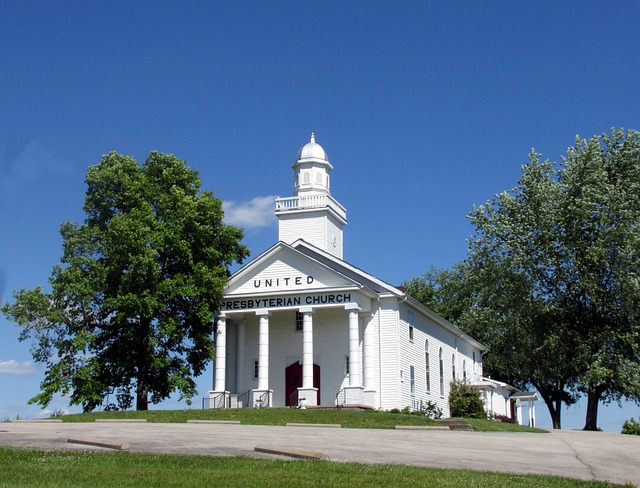Presbyterianism is a branch of Protestant Christianity that distinguishes itself from other religions in several ways.
Table of Contents
Origins and Beliefs of Presbyterianism
Presbyterianism is a unique religious tradition that sets itself apart from other religions in several ways. To understand these differences, it is important to delve into the origins and beliefs of Presbyterianism.
Presbyterianism traces its roots back to the Protestant Reformation in the 16th century. It was founded by John Calvin, a French theologian who sought to reform the Catholic Church. Calvin’s teachings emphasized the sovereignty of God and the authority of scripture. These ideas formed the basis of Presbyterian beliefs.
One of the key beliefs of Presbyterianism is the concept of predestination. Presbyterians believe that God has predetermined the fate of every individual, whether they will be saved or condemned. This belief is based on the idea that God is all-knowing and all-powerful, and therefore has complete control over human destiny. While this belief may seem controversial to some, it is a fundamental aspect of Presbyterian theology.
Another important aspect of Presbyterianism is its form of church governance. Unlike other religions that have a hierarchical structure with a central authority figure, such as a pope or a bishop, Presbyterians believe in a system of representative government. Each congregation is governed by a group of elders, known as the session, who are elected by the members of the church. This democratic approach to church governance reflects the Presbyterian belief in the priesthood of all believers.
Presbyterians also place a strong emphasis on education and intellectual inquiry. They believe that faith and reason are not mutually exclusive, but rather complement each other. This belief is reflected in the Presbyterian tradition of rigorous theological education for its clergy and the encouragement of critical thinking among its members. Presbyterians value the pursuit of knowledge and believe that it deepens their understanding of God and strengthens their faith.
In terms of worship, Presbyterianism is characterized by its simplicity and reverence. Presbyterian worship services typically include prayers, hymns, scripture readings, and a sermon. The focus is on the Word of God and its interpretation, rather than elaborate rituals or ceremonies. This simplicity allows for a more personal and intimate connection with God.
Presbyterians also have a strong sense of community and social justice. They believe in the importance of caring for the less fortunate and advocating for justice and equality. Many Presbyterian churches are actively involved in charitable work and social activism, seeking to make a positive impact on their communities and the world.
In conclusion, Presbyterianism stands out from other religions due to its origins, beliefs, and practices. Its emphasis on predestination, representative church governance, intellectual inquiry, simplicity in worship, and commitment to social justice make it a distinct and vibrant religious tradition. Whether you are a Presbyterian or simply curious about different religions, exploring the origins and beliefs of Presbyterianism can provide valuable insights into this unique faith.
Presbyterian Worship and Sacraments

Presbyterian Worship and Sacraments
When it comes to worship and sacraments, Presbyterianism has its own unique practices that set it apart from other religions. In this article, we will explore how Presbyterian worship and sacraments differ from those of other faiths.
Presbyterian worship is characterized by its simplicity and focus on the Word of God. Unlike some religions that have elaborate rituals and ceremonies, Presbyterian worship centers around the preaching of the Bible. The sermon takes center stage during the worship service, with the minister delivering a message based on the Scriptures. This emphasis on the Word of God reflects the Presbyterian belief in the authority and sufficiency of the Bible.
Another distinctive aspect of Presbyterian worship is the use of hymns and psalms. Music plays an important role in Presbyterian worship, with congregational singing being a key component. Hymns and psalms are carefully selected to complement the sermon and enhance the worship experience. The congregation actively participates in the singing, creating a sense of unity and community.
In addition to the sermon and congregational singing, Presbyterian worship also includes prayers and readings from the Bible. Prayers are offered for various needs and concerns, both personal and communal. The readings from the Bible serve to further illuminate the sermon and provide additional insights into the Word of God.
Presbyterian worship services are typically held on Sundays, with the Lord’s Day being considered a special day of worship and rest. The order of worship may vary slightly from one congregation to another, but the core elements remain the same. The focus is always on honoring and glorifying God through the preaching of His Word and the participation of the congregation.
Moving on to sacraments, Presbyterianism recognizes two sacraments: baptism and the Lord’s Supper. Baptism is seen as a sign and seal of God’s covenant with His people. It symbolizes the washing away of sin and the believer’s identification with Christ’s death, burial, and resurrection. In Presbyterian churches, both infants and adults can be baptized, although the mode of baptism may differ (some churches practice sprinkling, while others practice immersion).
The Lord’s Supper, also known as communion or the Eucharist, is a sacrament that commemorates the Last Supper of Jesus with His disciples. In Presbyterian churches, the Lord’s Supper is typically celebrated regularly, often on a monthly basis. The elements used are bread and wine (or grape juice), which symbolize the body and blood of Christ. The sacrament is seen as a means of grace, where believers partake in a spiritual communion with Christ and with one another.
In conclusion, Presbyterian worship and sacraments differ from those of other religions in several ways. The emphasis on the Word of God, the use of hymns and psalms, and the inclusion of prayers and readings from the Bible all contribute to a unique worship experience. The sacraments of baptism and the Lord’s Supper hold special significance in Presbyterianism, symbolizing God’s covenant with His people and their communion with Christ. These distinct practices and beliefs make Presbyterianism a distinct and vibrant faith tradition.
Presbyterian Church Governance and Structure
The Presbyterian Church is unique in many ways, including its governance and structure. Unlike other religions, the Presbyterian Church is governed by a system of elders and ministers, known as a session. This session is responsible for making decisions and providing spiritual guidance to the congregation.
One of the key differences between the Presbyterian Church and other religions is the way in which decisions are made. In many other religions, decisions are often made by a single leader or a small group of leaders. However, in the Presbyterian Church, decisions are made collectively by the session. This means that the power is distributed among a group of individuals, rather than being concentrated in the hands of one person.
This system of governance is based on the belief that no one person should have absolute authority. Instead, decisions are made through a process of discussion and consensus-building. This ensures that a variety of perspectives are taken into account and that decisions are made in the best interest of the congregation as a whole.
Another unique aspect of the Presbyterian Church’s governance is the role of elders. Elders are elected by the congregation and serve as spiritual leaders and decision-makers. They are responsible for providing guidance and support to the congregation, as well as making important decisions about the direction of the church.
In addition to elders, the Presbyterian Church also has ministers who play a vital role in the governance and structure of the church. Ministers are ordained individuals who are responsible for leading worship services, providing pastoral care, and preaching the word of God. They work closely with the session to ensure that the needs of the congregation are met and that the church is fulfilling its mission.
The Presbyterian Church also has a system of checks and balances in place to ensure that decisions are made in a fair and transparent manner. For example, decisions made by the session can be appealed to a higher governing body, known as the presbytery. This provides a mechanism for accountability and ensures that decisions are made in accordance with the teachings of the church.
Overall, the governance and structure of the Presbyterian Church set it apart from other religions. The collective decision-making process, the role of elders and ministers, and the system of checks and balances all contribute to a unique and inclusive approach to leadership. This system ensures that the voices of the congregation are heard and that decisions are made in the best interest of the church as a whole. So, if you’re looking for a religion that values community, collaboration, and accountability, the Presbyterian Church may be the perfect fit for you.
Presbyterianism’s Relationship with Other Christian Denominations
Presbyterianism is a branch of Christianity that has its own unique beliefs and practices. While it shares many similarities with other Christian denominations, there are also some key differences that set it apart. In this article, we will explore how Presbyterianism relates to other Christian denominations and what makes it distinct.
One of the main differences between Presbyterianism and other Christian denominations is its form of church governance. Unlike some denominations that have a hierarchical structure with a central authority figure, such as a bishop or pope, Presbyterian churches are governed by a group of elected elders. This system, known as Presbyterian polity, emphasizes the importance of shared leadership and decision-making within the church community.
Another distinguishing feature of Presbyterianism is its emphasis on the sovereignty of God. Presbyterians believe that God is in control of all things and that humans are called to submit to His will. This belief is often expressed through the concept of predestination, which holds that God has already determined who will be saved and who will not. While this idea may be controversial to some, it is a central tenet of Presbyterian theology.
Presbyterianism also differs from other Christian denominations in its approach to sacraments. While many denominations recognize seven sacraments, such as baptism and the Eucharist, Presbyterians only recognize two: baptism and the Lord’s Supper. These sacraments are seen as symbolic acts that represent the grace and presence of God, rather than as means of obtaining salvation.
Despite these differences, Presbyterianism maintains a strong connection to other Christian denominations. Presbyterians consider themselves part of the broader Christian family and often engage in ecumenical dialogue and cooperation with other churches. They share a common belief in the divinity of Jesus Christ and the authority of the Bible as the Word of God.
Presbyterianism also has historical ties to other Protestant denominations, particularly those that emerged during the Reformation. Many of the core principles of Presbyterianism, such as the priesthood of all believers and the importance of Scripture, can be traced back to the teachings of Martin Luther and John Calvin. These shared roots have fostered a sense of kinship and mutual respect among Protestant denominations.
In recent years, Presbyterianism has faced some internal divisions over social and theological issues. These divisions have led to the formation of different branches within the Presbyterian Church, each with its own distinct beliefs and practices. However, despite these differences, there is still a sense of unity and shared purpose among Presbyterians, as they strive to live out their faith and serve God in their communities.
In conclusion, while Presbyterianism has its own unique beliefs and practices, it also maintains connections with other Christian denominations. Its form of church governance, emphasis on the sovereignty of God, and approach to sacraments set it apart from other denominations. However, Presbyterians still consider themselves part of the broader Christian family and engage in dialogue and cooperation with other churches. Ultimately, Presbyterianism is a rich and diverse tradition that continues to evolve and adapt to the changing needs of its members and the world around it.
Conclusion
Presbyterianism is a branch of Protestant Christianity that differs from other religions in several ways. It emphasizes the sovereignty of God, the authority of Scripture, and the importance of the community of believers. Presbyterian worship is characterized by simplicity and a focus on preaching. The governance structure of the Presbyterian Church is also distinctive, with a system of representative democracy and shared leadership. Overall, Presbyterianism stands out for its theological beliefs, worship practices, and organizational structure, setting it apart from other religions.


